Blog Posts Tagged Nonlinear Structural Materials Module
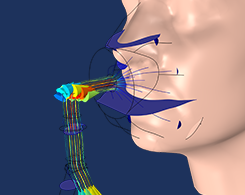
Optimizing an NIV Mask Design with Multiphysics Simulation
NIV masks offer a form of noninvasive monitoring and ventilation for COVID-19 patients, which lessens the need for ventilators and other mechanical respirators.
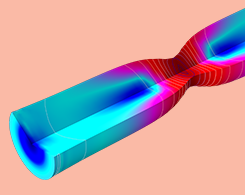
Evaluating the Necking of an Elastoplastic Metal Bar Benchmark Model
To determine the strength of elastoplastic materials, engineers often use uniaxial testing to analyze necking instability. This benchmark model proves that simulation is also a reliable method.
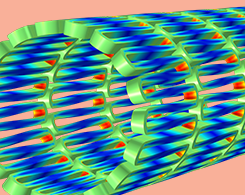
Analyzing an Arterial Self-Expanding Stent with COMSOL Multiphysics®
Interested in bioengineering? Read this overview of a self-expanding arterial stent modeled in COMSOL Multiphysics® with an implemented shape memory alloy material.

Studying Presbyopia with an Optomechanical Model of the Human Eye
You have to see this multiphysics simulation research: To help combat the effects of presbyopia in aging eyes, Kejako built a 3D optomechanical model of a full human eye.
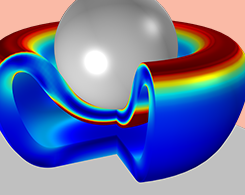
How to Model the Compression of a Hyperelastic Foam
When characterizing hyperelastic materials, how do you ensure accuracy? Here, we show how to model the compression of a sphere made of an elastic foam using experimental data.

The Elephants of Materials Science: SMAs Never Forget Their Shape
Learn about the history and use cases of shape memory alloys such as nitinol. You can also model the phase transformation of these unique materials in COMSOL Multiphysics®.
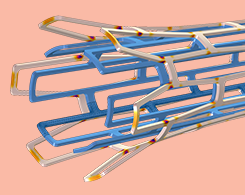
Analyzing the Deformation of a Biomedical Stent with Simulation
By studying deformation in an arterial stent, biomedical engineers can account for unwanted effects like dogboning and foreshortening long before the device is ever implanted.

Analyzing the Mechanical Behavior of Cells for Biological Applications
Finite element modeling can be used to analyze the mechanical behavior of biological cells. Guest blogger Björn Fallqvist of Lightness by Design sheds light on this bioengineering topic.
